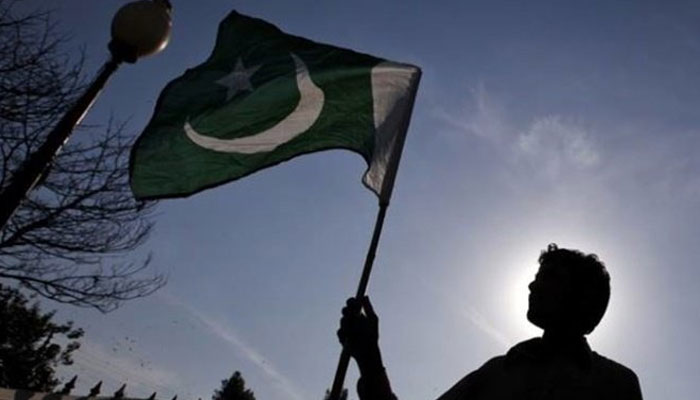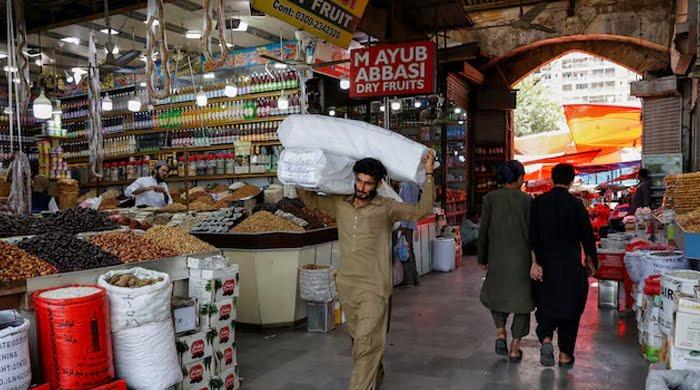Going forward, what kind of Pakistan do we want?
There was a time when politics of ideology existed in Pakistan. In the early days of PPP there was talk of land reforms, of providing basic amenities to the people
May 12, 2022

For those of us who remember, and for those of us who have been told by persons older than us, there was a time when politics of ideology existed in Pakistan. In the early days of the PPP, after Zulfikar Ali Bhutto came to power, there was talk of land reforms, providing basic amenities to the people and of creating a liberal, progressive, secular state.
In contrast to the PPP, other parties including the JI opposed this agenda. But the debate between the two was healthy and a good way to make voters determine who they wish to cast their vote for.
Of course, this politics of ideology has begun to vanish around the world. It is barely visible in the US where the Trump era has brought in what can only be called the dynamics of Donald Trump and his bizarre theories about both the world and his own country.
There are those who support those and there are those who support Joe Biden and the Democrats. But ideologically speaking, in terms of economic reform or labour rights or rights for the people, there is very little difference between the two. Yet it is astonishing how much people yearn for the difference.
Read more: The state of Pakistan — which way forward?
The fact that Bernie Sanders, who himself states that he is a socialist, could gain so much popularity in the US is proof of this. Indeed, there are many who believe that had Sanders been the Democratic candidate against Trump instead of Hillary Clinton in the election previous to the most recent one, he could well have won it by taking the seats in key states.
The same lack of ideology is visible in Britain and in India the ugliest form of Hindu supremacists have taken hold of power destroying the secular, shining India of Nehru, Gandhi and at least some of those who followed.
In our own country, we also see ideology vanishing from politics. It has been replaced by what we can only call a culture of sheer hatred. In speeches, the PML-N is now resorting to similar tactics as those used and popularized by the PTI, viciously attacking opponents and not raising issues of policy rather than the issues of personality.
Marriyum Aurangzeb's diatribe attacking the mysterious Farah Shehzadi or Farah Gogi was an example. Marriyum in this case sounded no different to the PTI spokespersons we have heard in the past.
This is unfortunate. Hatred has been injected into our politics and it is difficult to remove this from the blood. The PTI of course continues its own vehement attacks on opponents and sticks to an ideology based on calling others criminals while ignoring their own deeds. As a result, we can say we have a two-party system in the country.
Read more: The way out of the political abyss
There are those who like and would vote once again for Imran Khan and there are those who dislike him and would not do so. The side backing Imran Khan as well as Imran Khan himself terms all those who oppose him, traitors, essentially on the basis of the strange ‘lettergate’ story that he still sticks to and insists it was an attempt to regime change.
We have only rarely seen regime change in the country, most notably when Zulfikar Ali Bhutto was removed from power, and it is right now not in the interest of the US to create instability in Pakistan. This the PTI apparently does not think about.
In this situation, with hatred as its main agenda and hatred also becoming the main agenda of other mainstream parties, we are in a very unfortunate position.
At the moment we cannot call the divide that exists in the country polarisation. It is more like a civil war. And indeed, there have been predictions that civil war could break out.
The attack at Masjid-e-Nabvi, the attack on Qasim Soori at Kohsar Market, and other incidents show that people appear to have lost both their common sense and their sense of decency.
Read more: The truth about conspiracy theories
All political parties should be promoting decency, and simple rational behaviour given the harm the attack in Saudi Arabia has caused to the nation as a whole and simply because we would surely like to appear before the world as a nation of human beings able to handle affairs with acumen and tact rather than viciousness, vindictiveness and the ugly hatred that can be seen scattered all over social media apps like Twitter.
In some cases, it is clear that automated programmes are being used to send out messages directed at a particular person, one at a time. Women TV anchors have often been the target of these attacks. This is perhaps the sorriest state of politics we have ever seen in Pakistan.
For journalists, the era that is now upon us is worse than the times under General Zia. There is again a clear divide between those who are seen as pro-Imran and those seen as anti-Imran. There has been absolutely no talk even in the media about educating people to act in a more civilised manner and no attempt to ask what precisely the politics of a particular group or a particular party is to be in the future.
We should be asking the PML-N and its long list of allies what they intend to do to put a staggering economy back on track. The answers given so far by Miftah Ismail and Ishaq Dar have not been convincing.
But most importantly of all, we need to remove hatred so that our youth is not destroyed. This is already happening. The youth, like those everywhere in the world, are most vulnerable to cult-like following and behaviour which emulates their leaders.
Read more: The loss of ‘tameez’ and ‘tehzeeb’
We are seeing this happening in Pakistan with Imran virtually behaving like a cult figure rather than a politician. This situation cannot continue indefinitely. If we encourage mobs of young people to act violently, we could have a very dangerous situation in Islamabad when the long march takes place. Already from various towns and cities, there have been reports of clashes between the two sides who today make up the complicated, confused and non-ideological politics of Pakistan.
Pakistan badly needs an ideology. People need to decide once and for all what kind of state they wish to live in. Do they want a state which provides for the needs of the people? This is especially relevant at a time when UN reports talk of rising hunger and food insecurity and warns it could worsen in the future.
We must also talk about farmers and their situation as well as those who work on minimum wage or often under it, with only a few employers ready to pay the minimum wage. But these issues do not come up in a parliament which is largely irrelevant and where instead of acts, ordinances are used to pass bills. This is dangerous and has to end.
The writer is a freelance columnist and former newspaper editor. She can be reached at: [email protected]
Originally published in The News











